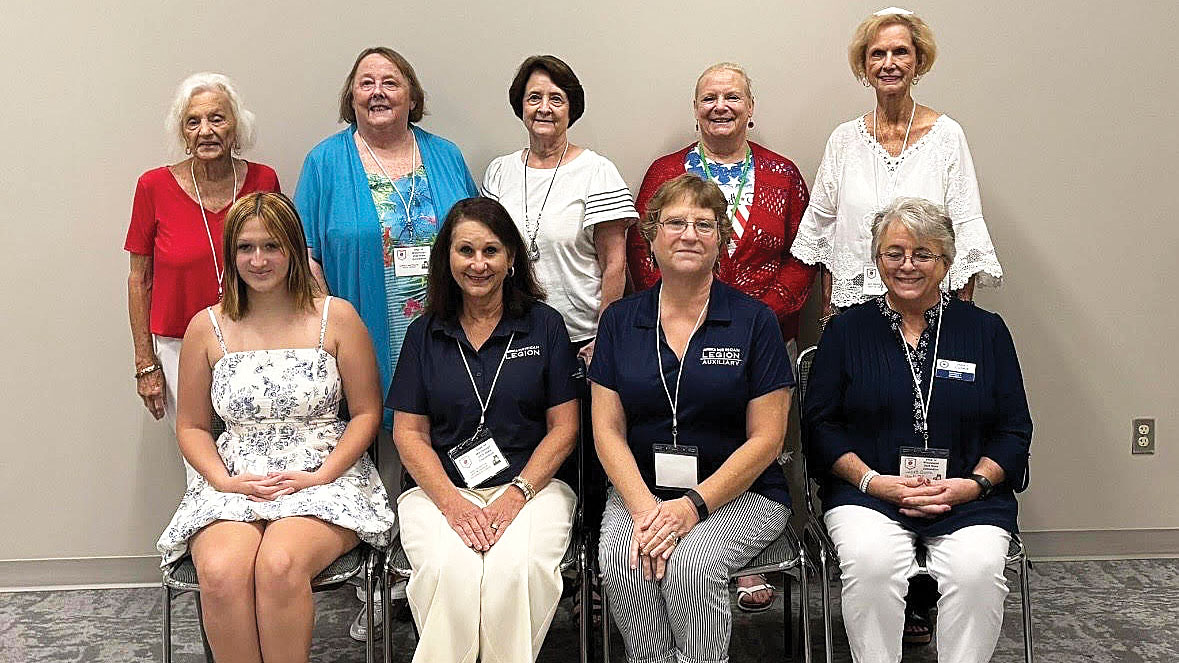Think Pink experts spread cancer awareness, education
Published 7:57 pm Tuesday, October 22, 2019
Cancer is a scary thing.
Breast cancer is the most common cancer in women. Breast cancer is also survivable. Between 80 and 90 percent of women survive beyond five years after being diagnosed, according to a study published by the National Center for Biotechnology.
On Tuesday, King’s Daughters Medical Center Foundation held its 15th annual Think Pink Breast Cancer Awareness Luncheon, where a panel of experts educated the audience about the importance of screening and prompt treatment for breast cancer.
Trending
Foundation Director Jeff Richardson moderated a panel of five experts including general surgeon Dr Michael Peavey, Dr. Jani Purvis, Dr. William Hay, Cheri Brooks and Megan Kellum.
Brooks is chief nursing officer at KDMC, but didn’t attend the panel to share her perspective as a nurse. Instead, she shared her perspective as a breast cancer survivor — of the treatment and the recovery that followed.
Brooks has a history of the disease — her mother was diagnosed with breast cancer at the age of 69. After her surgery in December of last year, Brooks began the long journey toward getting better. It wasn’t a journey she would have to walk alone.
“My recovery was hard and I know my sisters understand that,” Brooks said. “It’s hard physically and mentally. But my support team — my family, my coworkers, my community and those pink sisters were unbelievably wonderful to me.”
For Brooks, a major difficulty in her recovery was accepting that it would take time. She has worked since she was 15 years old. Work, according to Brooks, is in her nature. But she slowly came to accept that she was going to get better in time. Her goal for 2019 — the goal she reminds herself of every day — is to find joy in life. She also wanted to share her story with others.
“When I finally did get back to work — gradually, as ordered — I spoke to Jeff Richardson about wanting to share my experience. He said, ‘I know just the place.’ I’m grateful for all of you here today to support each other and others.”
Trending
The process for discovering breast cancer starts with screening. According to Hay, 80 to 95 percent of women diagnosed with the disease have no family history of breast cancer, so screening is important for all women. Typically, for those cases where a family history isn’t a factor, screening starts at 40 and continues until there is less than a 10 year life expectancy.
“Obviously, God only knows when that time is,” Hay said. “I usually have a conversation with our older patients and I say, if I were to tell you today you have breast cancer, would there be any treatment that you would want to pursue. If the answer is ‘yes’ or ‘I’m not sure’, then the mammogram is recommended.”
If an abnormality is found following a mammogram and an ultrasound, a diagnosis can’t be made right away. A surgeon must perform a biopsy, which is then sent to a pathologist to determine the full diagnosis.
“Once a pathologist has looked at it and has determined that it’s malignant, we sit down and go through a full staging process,” Peavey said. “Whenever you hear the diagnosis of breast cancer, that’s the first thing that pops into your mind. What stage are you? What’s your prognosis? You don’t know that until you have all of your information back, and that includes the information that we get at the time of surgery.”
Following diagnosis, the cancer is removed through either a mastectomy, a mastectomy with reconstruction, or a lumpectomy — where only a portion of the breast is removed — followed by radiation. Doctors will discuss the pros and cons of each treatment with the patient and the patient will make the final decision. When the surgery is over, the healing process begins.
Patients who have undergone a mastectomy will be admitted at least overnight, and Peavey said they are routinely visited by a physical therapist in the hospital.
“For a lumpectomy, that can vary post op, there will be some women who need therapy and some don’t,” he said.
Kellum said patients can experience pain, swelling or stiffness following a surgery that needs to be addressed. Physical therapists also are involved in educating patients about their recovery.
“We start at day one trying to get you back to your normal,” Kellum said.





